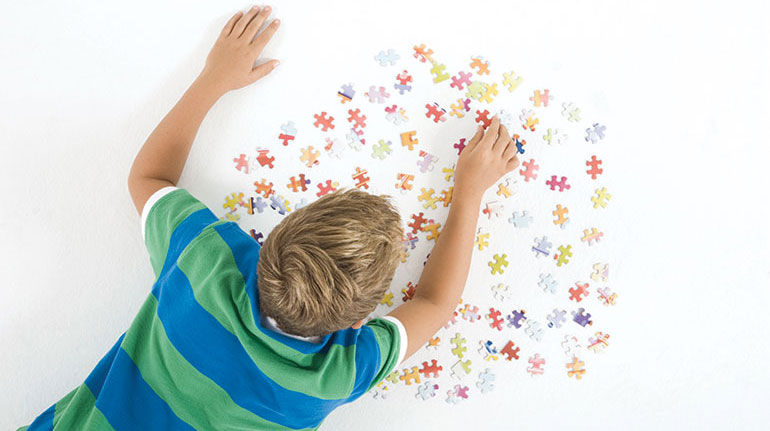One of the toughest problems adoptive parents face is that of talking to our children about the reasons they were placed for adoption. Our families are so happy and loving that we hate to bring up any unpleasant information. So we’ve pulled together a team of experts to help you talk about the tough stuff with your kids — including how to get the conversation started.
Talking Tips
While you may wish you could protect your children from hard truths, the fact is, they think about their birth families and adoption stories more than you know — and they may imagine scenarios worse than the reality. “Parents think that talking about sad things will make a child sad, but they need to know that home is a safe place where sad feelings can be talked through,” says Joni Mantell, LCSW, director of the Infertility and Adoption Counseling Center in New Jersey and New York.
The conversation starters below will help you find the words to begin this serious conversation with an elementary-school-age child — when he begins to understand the concepts of adoption and birth parents. You can have your talk anywhere: in the car on an outing together, during story and snuggle time, or whenever your child asks about his adoption.
Experts agree that it’s best to reveal details slowly, to tell an age-appropriate story and build on it as your child matures. “Think of it as a pencil sketch to be filled in later,” says Ronny Diamond, MSW, in private practice in New York City, and a consultant for Spence-Chapin. By the time the child is in his early teens, he should know the full story.
“Your child may say, ‘This isn’t fair,’ or ‘Why did this happen to me?'” says MaryAnn Curran, vice president of social services and U.S. adoption for the World Association for Children and Parents (WACAP). It’s a big deal for a child to know that his birth parents didn’t choose to parent him, and he will need time to get used to the idea. Reassure him that you will always take care of him. “One talk is not enough,” says Curran.
Jayne Schooler, coauthor of Telling the Truth to Your Adopted or Foster Child and Wounded Children, Healing Homes, adds, “Children are more resilient than we give them credit for.”
Tough Topic: Abandonment
In international adoptions, many documents mention “abandonment” — the legal term for one of the reasons a child would be allowed to leave the country and be adopted, says Diamond. But that doesn’t make it any easier to explain it to your child.
Whatever the situation, your goal is to tell your child the truth, without painting a negative picture of the birth parents. Steer clear of the word “abandonment” — while it is the legal term used in these situations, infants who are truly abandoned (as opposed to left where they were intended to be found) usually don’t survive. Tell your child that she was left in a public place, so that she would be found right away, and, in her country of birth, that is the way a woman must make an adoption plan.
And don’t be afraid to talk about feelings. “Children don’t just want to know the facts of what happened, they want to know how their birth parents felt,” says Mantell. “Using a calm tone, say that the decision was probably heartbreaking for the birth mother, but ‘she left you where she knew someone would take care of you and find you a forever family.'”
Conversation starter: “Your birth mother was probably very sad because she couldn’t raise you, but she knew that the best place for you to be found and taken care of was the marketplace [or hospital, or wherever the child was found]. You were taken right away to the children’s home, where adults fed and changed you and helped bring you to us.”
Tough Topic: Criminal Behavior
Parents don’t like to talk about criminal behavior by a birth parent because they don’t want to give a negative impression. They fear the child will think that, if his birth parents were bad, he is bad, too.
“Always talk about good decisions versus bad decisions,” says Curran. A birth parent may have made bad choices that put her in prison, but she made a good choice to find a safe home for her child. Children know about breaking rules and getting punished, and will understand their birth parents’ story if it’s told in this way.
Put the birth parents in the context of their families, if you have family information. For instance, you might explain that the birth mother didn’t have parents to help her learn right from wrong, says Diamond. But don’t embellish details or make up a story. If you don’t know the reason for bad actions, say so: “We don’t know why she made these bad choices. But we’re so happy she made a good choice to find a safe home for you.”
Conversation starter: “When you were a baby, your birth mother had to go to jail. She made a very bad decision and broke a law, so she had to be punished. Do you remember when you broke your sister’s doll and had to go to your room? When you’re a child and you break a rule, that’s how you are punished. But when you’re an adult and you break a law, sometimes you have to go to jail. Your birth mother knew that she couldn’t take care of a child in jail, so she made a good decision to have you live in a safe place [or the judge decided you needed to live in a safe place].”
Tough Topic: Poverty
Though poverty seems a simple explanation — the birth parents couldn’t afford to provide for the child — it’s rarely the only reason for adoption, and it can be scary if it’s overemphasized, says Mantell. Poverty can be frightening to children, especially given the images they encounter (in animated movies, people aren’t just poor, they’re tattered and starving).
“Rather than saying that the parents are living in a mud hut and scrounging for meals, it is better to talk about the things that are free here in the U.S., but which cost so much overseas — things that the birth parents couldn’t supply, such as education or health care,” says Curran. You can also explain that, in some countries, single mothers and their children don’t have many opportunities — like going to school or even getting a government ID card — and the child’s birth mother wanted to give him better opportunities than she could provide. For a domestic adoption, explain that the birth mother felt she wasn’t able to care for a baby at that time — she didn’t have help from her family or the birth father, or she wasn’t working and couldn’t provide the things a child would need.
In addition, “Kids may need to talk through the survivor guilt they feel,” says Mantell. Children may feel compelled to give to every charity they hear about, or feel guilty about having so many toys. Get them involved in donating to a charity — they may choose one that benefits their birth country — to help them feel proactive.
Conversation starter: “Your birth mother did the best she could, but she didn’t have the resources to take care of you. She didn’t have anyone to watch you while she worked, and she knew she couldn’t provide the things you’d need as you grew up, like going to school or seeing a doctor when you got sick. So she made an adoption plan for you to live with a family who could provide those things for you.”
Child’s response: “But why couldn’t you just give her money?”
Your response: “That sounds like a very good idea, and it’s good thinking on your part, but it doesn’t work that way. We didn’t know your birth mother, and she made this decision to have someone else raise you, because she felt it would give you a better life. We wanted to adopt a baby, and we were told about you. But we do give money to help people in Guatemala, and we hope that we can help many families that way.”
Tough Topic: Birth Siblings
How can you tell your child that his birth mother had another child whom she’s raising? Surprisingly, most kids take this news very well. “Parents are afraid that the child will feel rejected because another sibling was ‘kept’ or came afterward,” says Mantell. “But when the idea is put out there early, rather than as a surprise, it gives them time to process it as part of the big picture.” The earlier you bring up the issue of birth siblings, the more easily kids accept the information. And later on, they will probably be more at ease connecting with birth siblings than with birth parents.
When you tell your preschooler his adoption story, mention that there are other children. He won’t understand that these children are his birth siblings until at least age five or six. When you retell the story when he’s that age, add more details. Focus on the circumstances in the birth mother’s life at that time — maybe the other children’s birth fathers were involved, or the other children were older and more independent. Be clear that the birth mother couldn’t care for any new child at that time.
Conversation starter: “When you were born, your birth mother had two older boys. Those boys were in school and could take care of some things for themselves, but a baby needs much more care. Your birth mom knew she couldn’t care for a baby at that time in her life. So she made a plan to find a family who would be able to take care of you forever.”
Tough Topic: Drug or Alcohol Abuse
Kids usually learn about drugs and alcohol in elementary school, so it’s not too early to talk about addiction. In fact, you can use their school lessons to guide the conversation. Again, you want to frame your talk in terms of bad decisions and good decisions — not bad people and good people, says Schooler.
Before your child enters middle school, have this conversation again, and this time let him know that addictions are often genetic. Trying drugs or alcohol may be more dangerous for him than for other kids. Giving your child this information before he has to deal with the peer pressure of the tween and teen years will help him make good choices.
Conversation starter: “Your birth mother made some bad choices in her life that stopped her from creating a safe home for you. Do you remember learning about drugs in school? Your birth mother thought that taking drugs would make her feel better, but it actually made it impossible for her to take care of you. So then she made a good choice to find a safe place for you to live.”
Tough Topic: Physical Abuse or Neglect
When a child has a visible scar or remembers being hurt, parents must talk about abuse. Even if your child was abused as a baby, it’s still important that you talk about it with him. Many children have a strong pre-verbal memory of abuse or neglect — a child may be afraid to be alone, or afraid of small spaces, and not know why. “Kids have unfocused memories of fear or anger, and you must anchor those memories in something concrete. Parents do a huge service for their child when they help him make sense of his life,” says Curran.
Children — even older kids who remember abuse — may fear that they did something wrong that triggered the birth parent’s anger. “Tell them that it’s always a grown-up problem, and never because something was wrong with the child,” says Mantell.
Conversation starter: “Your birth mom never learned to be a good parent. Sometimes she hit you when she got angry — not because you did anything wrong, but because she didn’t know how to control her temper. You were just a little baby, and you got hurt. I know this sounds terrible, but your birth mom made a really good decision [or a judge made a really good decision] to make you part of a forever family, where you would be safe.”
Tough Topic: Rape
Rape is one of the most difficult things to discuss with a child. Mantell warns against talking about rape until the child is in his late teens — not because preteens aren’t mature enough to hear about it, but because the talk may make them anxious about their own normal sexual impulses.
It isn’t uncommon for a birth mother to say that she was raped, when it would have been difficult for her to tell her parents that she was pregnant. Say, “It appears as though she felt she was forced,” or similar words to suggest that you don’t know for sure. “The message I try to give is, she felt that she said no,” says Diamond.
Even if the rape was a random attack, let your child know that this isn’t the only thing about her birth father that she should remember. If you know any details about him, even what he looked like, you can help your child have a more positive image of him.
Conversation starter:
With young children: “Your birth mother didn’t know your birth father very well [or didn’t know him at all]. What we do know is that she said he was very tall and had brown hair, like you.”
With older teens: “We’ve told you that your birth mother didn’t really know your birth father. It says in her file that she said it was not consensual sex. It’s hard to know what actually happened in this case. From what I know of your birth mom, I know it would have been hard for her to tell her parents that she had consensual sex. But you know that date rape can happen, too. I would hate for you to focus on just this fact about your birth parents, since there are good things about them and many good qualities they’ve given you.”


